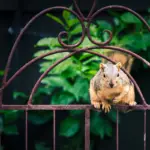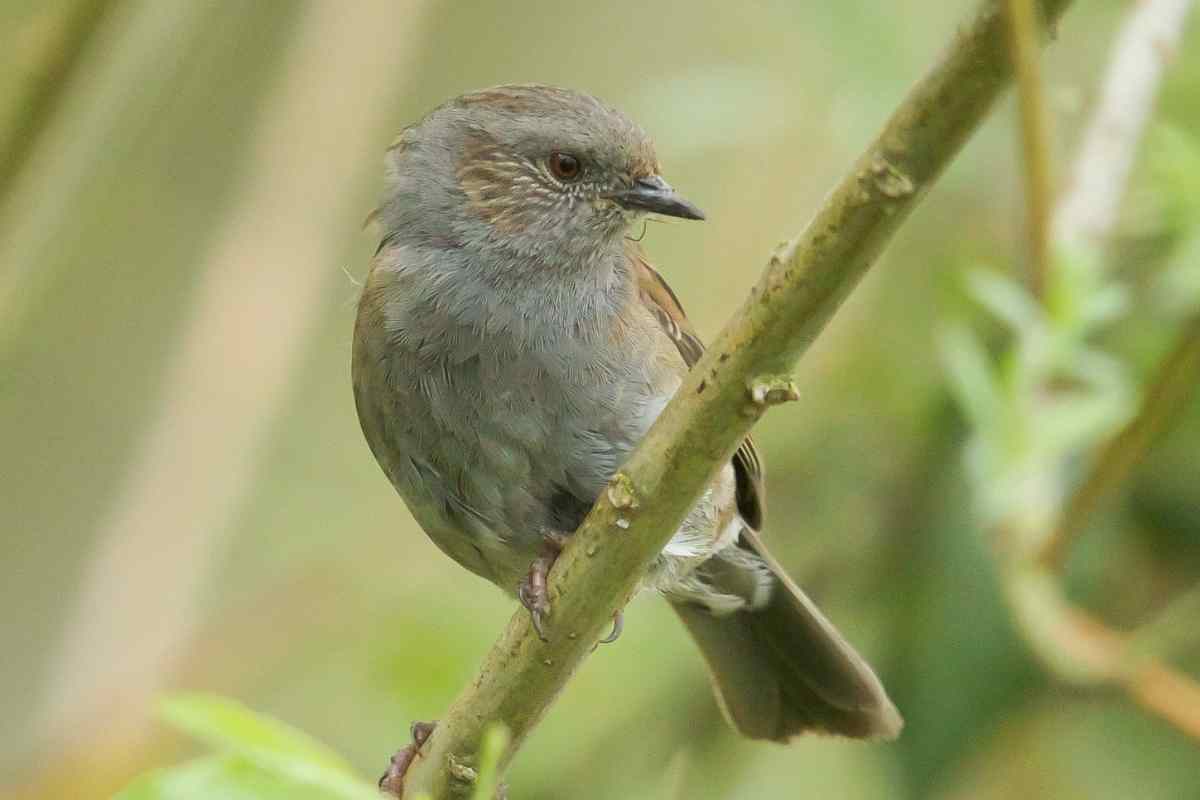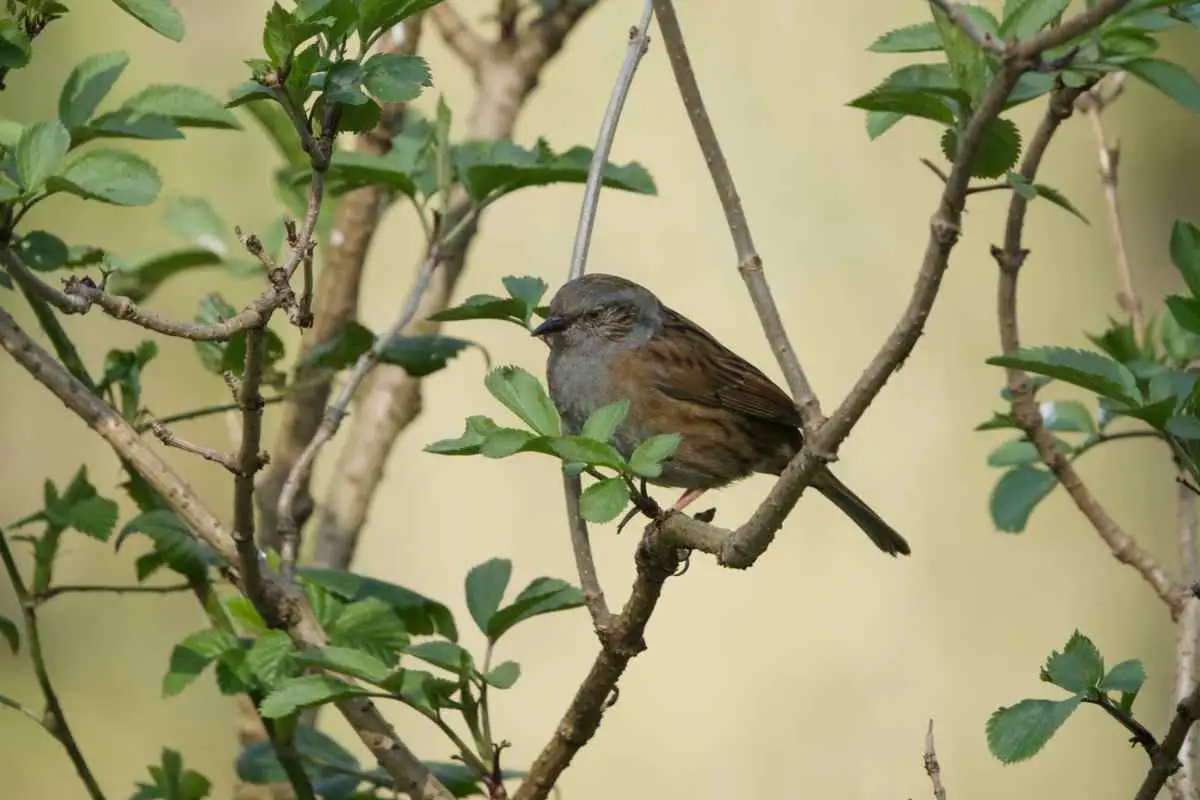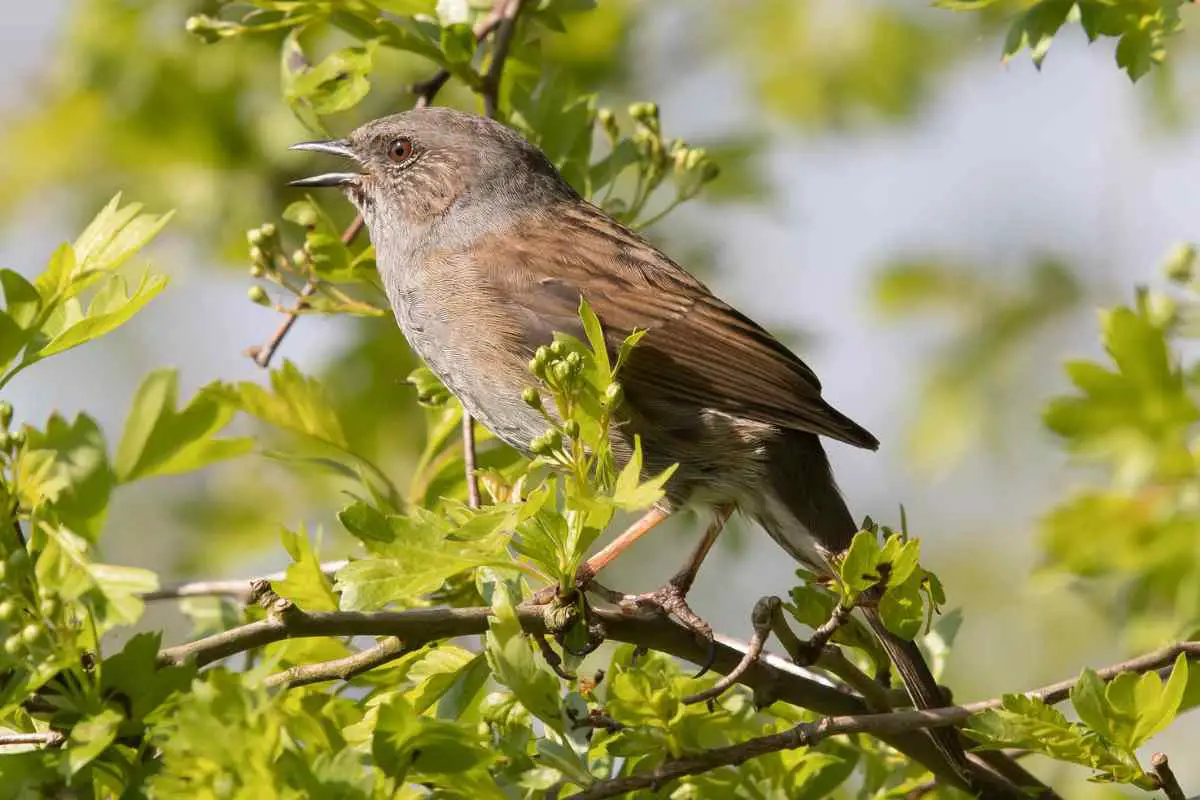Squirrels are known for their love of eating nuts, but they are not limited to just that. They can also be a nuisance to gardeners, as they have a tendency to dig up and eat plants.
However, there are some plants that squirrels will not eat, making them a great addition to any garden.
One type of plant that squirrels tend to avoid is allium. This plant is a member of the onion family and produces a distinctive odor and taste that squirrels do not like.
Allium can produce stunning spherical blossoms in a range of colors, making it a great choice for adding color to a garden while also keeping squirrels away.
Another plant that squirrels tend to stay away from is marigolds.
These herbaceous plants have a strong aroma that squirrels do not like, making them a great choice for gardeners looking to keep these critters at bay.
Marigolds are also easy to grow and can be a great addition to any garden, regardless of whether or not squirrels are a problem.
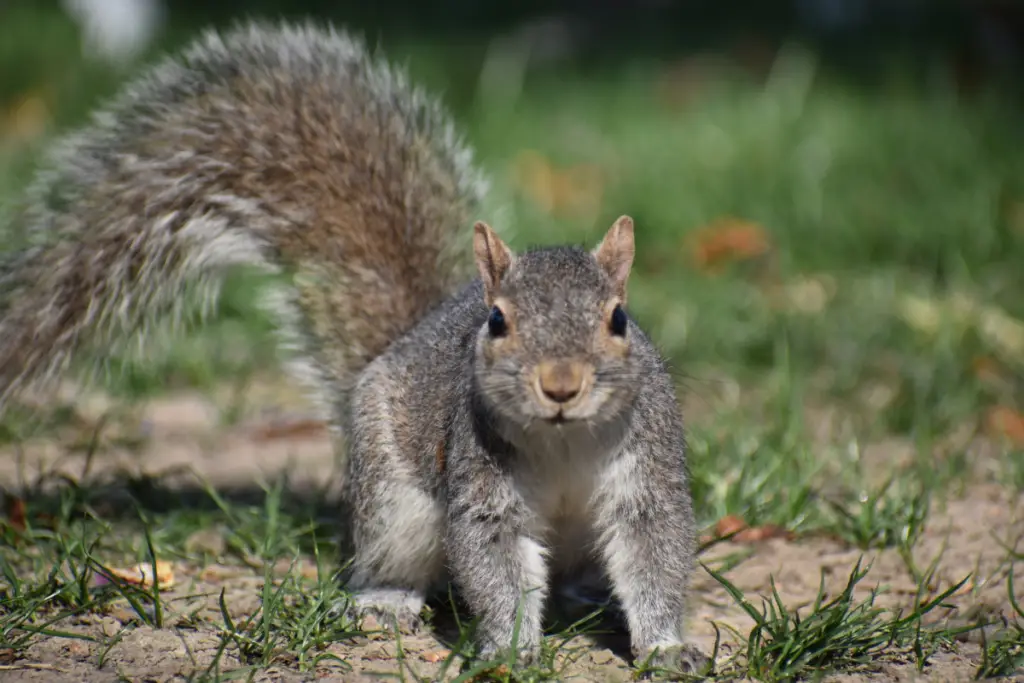
Table of Contents
Understanding Squirrel Feeding Habits
Squirrel Diet
Squirrels are omnivores, which means they eat both plants and animals. Their diet varies depending on the season and the availability of food.
In the spring and summer, squirrels prefer to eat fresh greens like grasses, leaves, and buds.
During the fall and winter, squirrels rely more on nuts, seeds, and fungi. Some of their favorite foods include acorns, walnuts, pecans, and sunflower seeds.
Why Squirrels Eat Plants
Squirrels eat plants for a variety of reasons. One reason is that plants provide them with essential nutrients and vitamins.
For example, acorns are high in protein and fat, which helps squirrels build up their fat stores for the winter.
Sunflower seeds are rich in vitamin E, which is important for maintaining healthy skin and fur.
Another reason why squirrels eat plants is that they need to wear down their constantly growing teeth.
Squirrels have incisors that never stop growing, so they need to gnaw on hard objects like nuts and seeds to keep their teeth from getting too long.
However, not all plants are appealing to squirrels. Some plants have a bitter taste or are toxic, which makes them unappetizing or even harmful to squirrels.
For example, squirrels tend to avoid plants in the allium family like onions and garlic, as well as plants in the nightshade family like tomatoes and eggplants.
Here is a table of some plants that squirrels will and won’t eat:
| Plants Squirrels Will Eat | Plants Squirrels Won’t Eat |
|---|---|
| Acorns | Onions |
| Walnuts | Garlic |
| Pecans | Tomatoes |
| Sunflower seeds | Eggplants |
It’s important to note that squirrels may still eat plants that are listed as “won’t eat” if they are hungry enough and there are no other food sources available.
Plants That Squirrels Avoid
Squirrels can be a nuisance in your garden, especially when they start to nibble on your plants.
Fortunately, there are some plants that squirrels tend to avoid. Here are some of the plants that can help keep squirrels away from your garden.
Plants with Strong Odors
Squirrels have a strong sense of smell, and some plants can produce odors that squirrels find unpleasant.
Alliums, such as garlic, scallions, and onions, produce a strong odor that squirrels may avoid.
Daffodils, with their bright and colorful flowers, also have a strong scent that can deter squirrels.
Other plants with strong odors that can help repel squirrels include:
- Mint
- Lavender
- Rosemary
- Sage
- Thyme
Plants with Bitter Taste
Squirrels have a strong sense of taste, and some plants have a bitter taste that can discourage them from eating them.
One example is daffodil, which not only has a strong odor but also a bitter taste that squirrels find unappealing.
Other plants with a bitter taste that can help keep squirrels away include:
- Fritillaries
- Hyacinths
- Bleeding Hearts
- Geraniums
- Dianthus
Plants with Prickly Leaves
Squirrels are also deterred by plants with prickly leaves, as they can be uncomfortable to walk on or eat. One example is the goldenrod, which has spiky leaves that can be difficult for squirrels to navigate. Other plants with prickly leaves that can help repel squirrels include:
- Holly bushes
- Juniper bushes
- Barberry bushes
- Blackberry bushes
- Rose bushes
By planting these types of plants in your garden, you can help keep squirrels away and protect your plants from their nibbling.
Keep in mind that no plant is completely squirrel-proof, so it’s important to take other measures, such as using physical barriers or repellents, to protect your garden.
Plants That Attract Squirrels
Squirrels are known for their love of nuts, but they also enjoy a variety of other foods. If you want to attract squirrels to your garden, there are several plants that you can grow that will do just that.
Here are some of the plants that squirrels find especially appealing:
Plants with Soft, Fleshy Fruits
Squirrels are attracted to fruits that are soft, juicy, and easy to eat. Some of the plants that produce these types of fruits include:
- Apples
- Pears
- Peaches
- Plums
- Grapes
- Berries (such as strawberries, raspberries, and blackberries)
If you want to attract squirrels to your garden, consider planting some of these fruit trees or bushes.
Just be aware that these plants may also attract other wildlife, such as birds and raccoons.
Plants with Nutritious Seeds
Squirrels love nuts, but they also enjoy seeds from other types of plants. Some of the plants that produce seeds that squirrels find especially appealing include:
- Sunflowers
- Pumpkins
- Squash
- Corn
- Soybeans
- Peanuts
If you want to attract squirrels to your garden, consider planting some of these plants. Just be aware that squirrels may also dig up and eat the seeds of other plants in your garden.
Plants with Sweet Nectar
Squirrels are also attracted to plants that produce sweet nectar. Some of the plants that produce this type of nectar include:
- Honeysuckle
- Bee balm
- Trumpet vine
- Salvia
- Phlox
If you want to attract squirrels to your garden, consider planting some of these plants. Just be aware that these plants may also attract other types of wildlife, such as bees and butterflies.
Overall, if you want to attract squirrels to your garden, there are several plants that you can grow that will do just that.
By planting a variety of these plants, you can create a garden that is not only beautiful but also attracts a variety of wildlife.
Preventing Squirrel Damage to Plants
Squirrels can be a nuisance to gardeners, as they can cause severe damage to plants.
Fortunately, there are several methods to prevent squirrel damage to plants.
The following sub-sections explore some of the most effective methods.
Fencing and Netting
Fencing and netting are effective ways to prevent squirrels from accessing plants. The following table summarizes the pros and cons of each method:
| Method | Pros | Cons |
|---|---|---|
| Fencing | Effective at keeping squirrels out | Can be expensive and time-consuming to install |
| Netting | Easy to install | Can be unsightly and may require frequent replacement |
When using fencing, it is important to bury the fence at least 6 inches deep to prevent squirrels from digging under it.
Additionally, the fence should be at least 3 feet tall to prevent squirrels from jumping over it.
When using netting, it is important to ensure that the netting is securely fastened to prevent squirrels from getting tangled in it.
Natural Repellents
Natural repellents can be effective at deterring squirrels from plants. The following table summarizes some of the most effective natural repellents:
| Repellent | Pros | Cons |
|---|---|---|
| Hot pepper spray | Inexpensive and easy to make | May need to be reapplied frequently |
| Blood meal | Effective at repelling squirrels | Can attract other animals |
| Predator urine | Effective at repelling squirrels | Can be expensive and may need to be reapplied frequently |
When using natural repellents, it is important to follow the instructions carefully to ensure that they are used safely and effectively.
Physical Barriers
Physical barriers can be effective at preventing squirrels from accessing plants. The following table summarizes some of the most effective physical barriers:
| Barrier | Pros | Cons |
|---|---|---|
| Chicken wire | Inexpensive and easy to install | Can be unsightly |
| Collars | Effective at protecting individual plants | Can be time-consuming to install |
| Prickly plants | Effective at deterring squirrels | May not be aesthetically pleasing |
When using physical barriers, it is important to ensure that they are securely fastened to prevent squirrels from getting through or around them.
In conclusion, preventing squirrel damage to plants requires a combination of methods. Gardeners should choose the methods that work best for their specific situation.
Conclusion
In conclusion, if you’re tired of squirrels munching on your beloved plants, there are several species that these furry critters tend to avoid.
By incorporating squirrel-resistant plants into your garden or outdoor space, you can create a harmonious environment where both humans and wildlife can thrive.
While it’s important to remember that no plant is entirely immune to a hungry squirrel’s appetite, certain varieties have characteristics that make them less appealing.
Some examples include daffodils, lavender, marigolds, peonies, and salvia. These plants possess natural deterrents such as strong scents, bitter tastes, or prickly foliage, which squirrels find unpalatable.
Additionally, incorporating plants with thick or leathery leaves, such as hellebores and yucca, can make it more challenging for squirrels to nibble on them.
Choosing plants that squirrels typically overlook can help preserve the beauty of your garden and protect your favorite flora from becoming squirrel snacks.
Remember to plan your garden strategically by placing squirrel-resistant plants in areas that receive the most squirrel activity.
Creating barriers, such as fences or netting, can also help deter squirrels from accessing your precious plants.
These simple measures, coupled with the right plant choices, can go a long way in maintaining a squirrel-free oasis.
- How to Build a Planter Box for Bamboo: A Step-by-Step Guide
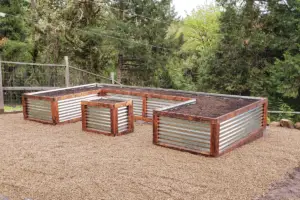
- Can Robotic Lawnmowers Handle Steep Slopes?
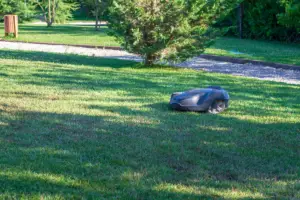
- Do You Need a Specific Lawn for a Robotic Lawnmower? Expert Advice
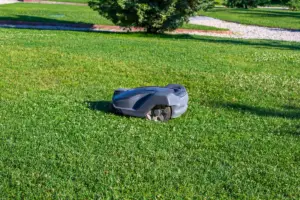
- Are Robotic Lawnmowers Safe for Pets and Children? Safety Features of Robotic Lawnmowers

- Why Use Robotic Lawnmowers? Advantages of Using a Robotic Lawnmower
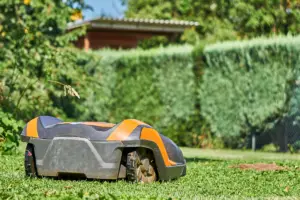
- Is the GARDENA SILENO City 300 Cordless or Corded? A Clear Answer











